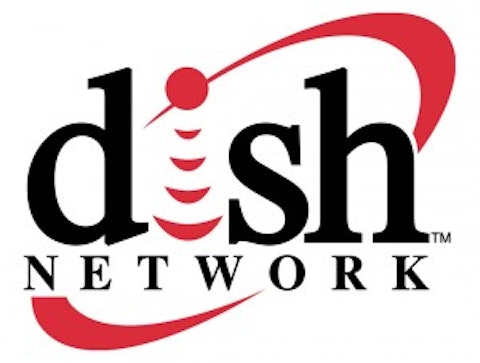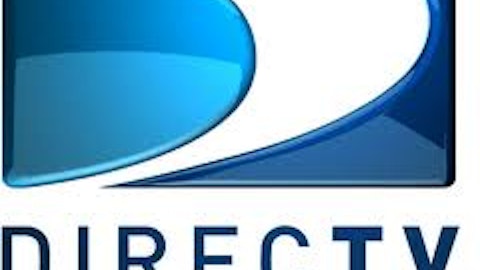DISH Network Corp (NASDAQ:DISH) looks like it might be in a tough spot. After a foiled takeover attempt of Sprint and an unsuccessful bid for Clearwire, the company might need to quickly find a synergistic partner if it wants to maintain its current market price. Wall Street seems to have nearly fully valued the two parts of DISH Network Corp (NASDAQ:DISH)’s business, its core satellite-TV operation and its potentially valuable wireless spectrum assets, so that the company is now obligated to realize the maximum out of those pieces. An augmentative merger or acquisition may be the only way to do it. But is such a deal available?

The market’s current take on DISH
DISH Network Corp (NASDAQ:DISH)’s satellite-TV operation, with around 14 million U.S. subscribers, is its main business. Unfortunately, it’s not as appealing as it once was. The viewer marketplace is saturated and offers limited growth prospects. The business also faces burgeoning competition from online access and soaring programming costs. In the last quarter, the company’s sales increased a meager 1.1% from the prior year, while the subscriber count dropped around 78,000 with adjusted profits falling about 5% due to higher programming fees.
Using competitors such as Time Warner Cable as a comparison, DISH Network Corp (NASDAQ:DISH)’s lackluster satellite-TV business appears to be worth roughly $13.8 billion, or $30 per share. This is based on a cash earnings of $1.53 billion and a market capitalization multiple of 9. Given the stagnant nature of the venture, a synergistic merger might be the only way to create significant additional value.
While its core operation is pretty mundane, DISH Network Corp (NASDAQ:DISH)’s wireless spectrum holdings are much more interesting. As wireless data use grows, additional bandwidth becomes increasingly precious and DISH was prescient enough to pick some up early. In 2008, the company acquired certain 700 MHz wireless licenses, and in 2012 it acquired an additional 40 MHz of 2 GHz spectrum.
It looks like this spectrum makes up a meaningful part of DISH Network Corp (NASDAQ:DISH)’s market value with a possible worth around $9 billion, or about $19 a share, based on comparable wireless transactions and published estimates. Since these wireless licenses have a use-it or lose-it nature to them, DISH needs to commercialize or monetize them in a timely manner. Developing a proprietary network is an expensive and daunting task; thus, finding a willing wireless partner or acquirer seems the most fruitful path to get full value from these assets.
What deals would justify DISH’s full value?
DIRECTV (NASDAQ:DTV), a leading provider of satellite-TV with over 20 million subscribers in the U.S. and over 16 million customers in Latin America, would certainly be a good partner for DISH. While a deal wouldn’t handle the spectrum issue, it would create some significant synergies. The combination could offer meaningful cost savings from rationalizing administrative expenses, may offer better negotiating clout in dealing with programmers, and potentially improve the ability to increase pricing.
Though a DirecTV/DISH merger looks to be a great fit, there are some significant obstacles that might make a deal unlikely. First, DIRECTV (NASDAQ:DTV) may not want to pay up for DISH’s wireless assets. Especially since their ultimate use would still be unresolved. An all cash deal, in the range of $20 billion, is probably too imposing and a stock deal might not be that attractive given DirecTV’s slightly undervalued shares. The company’s fair value looks around $70 per share based on 9 times cash earnings of $4.3 billion.





